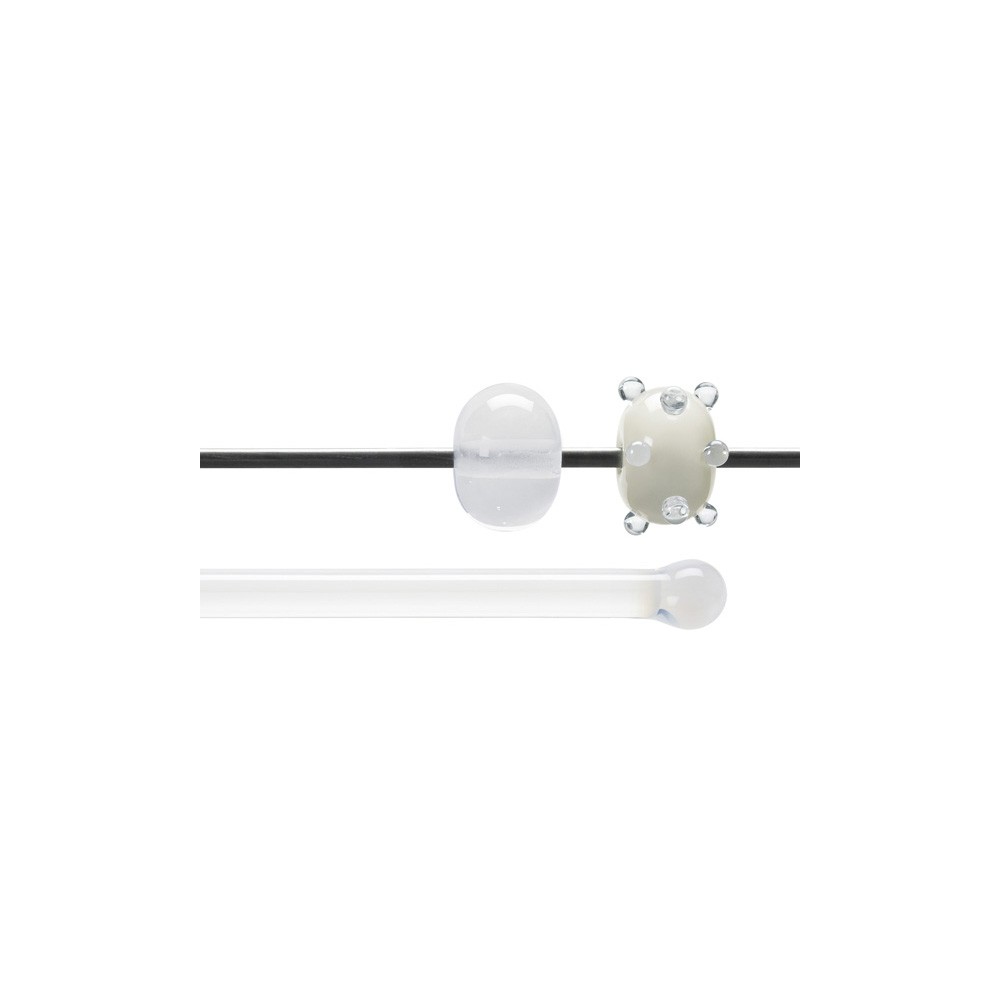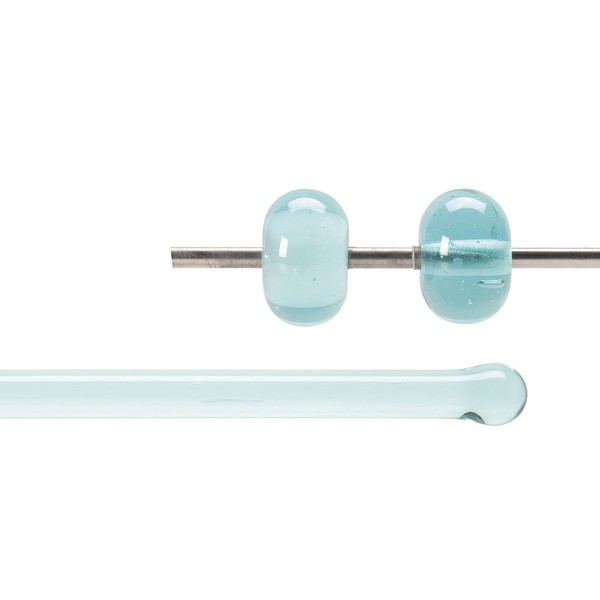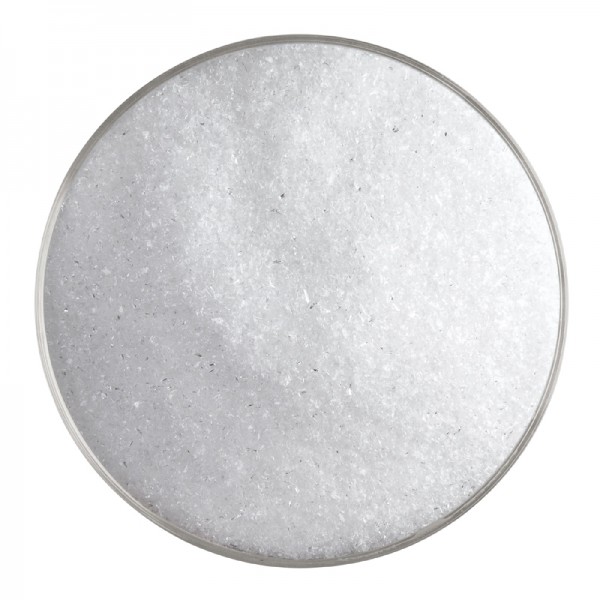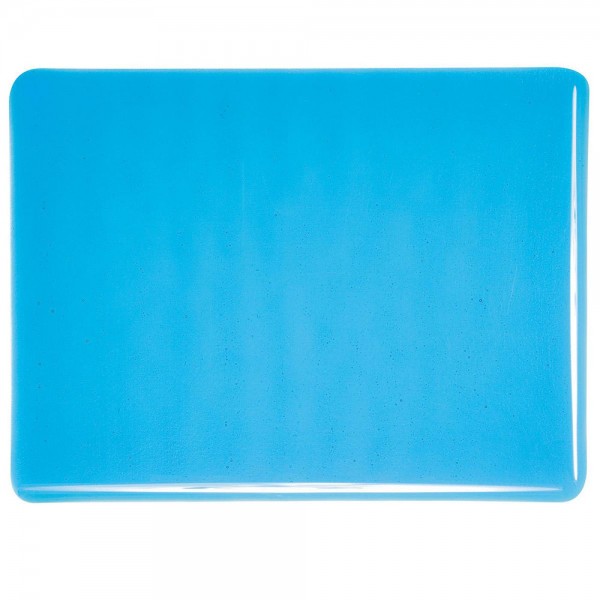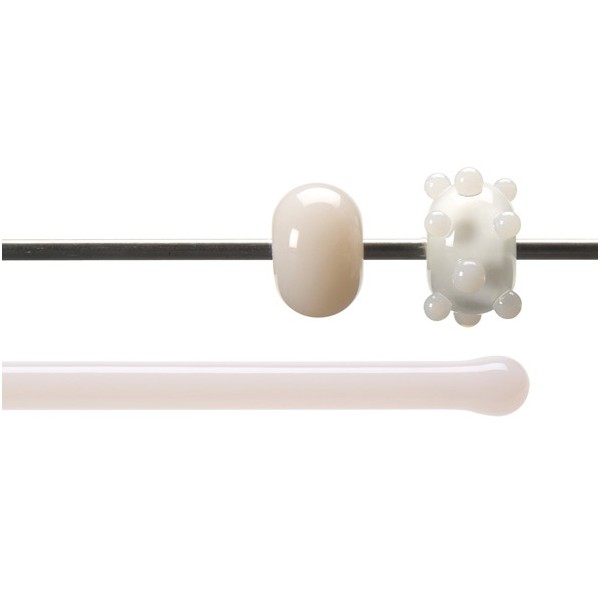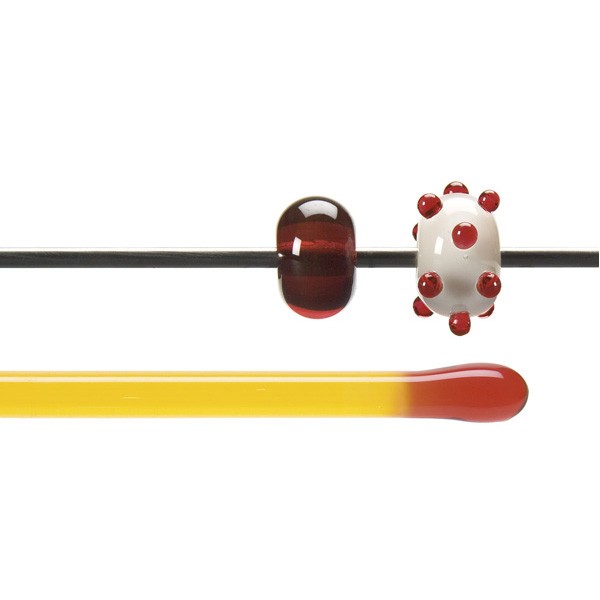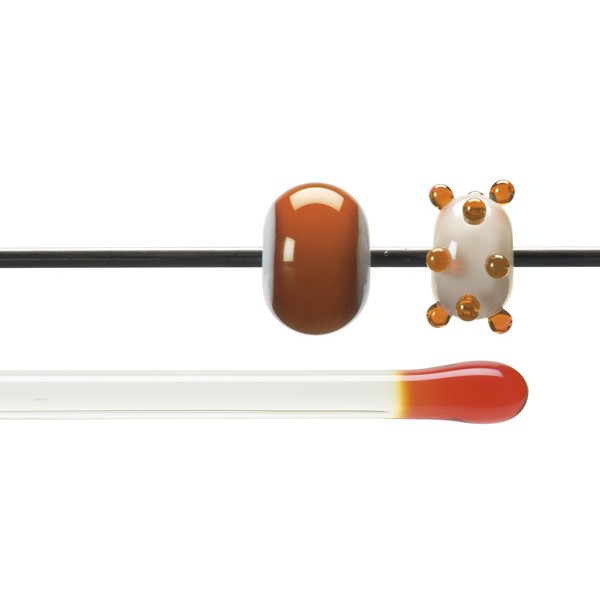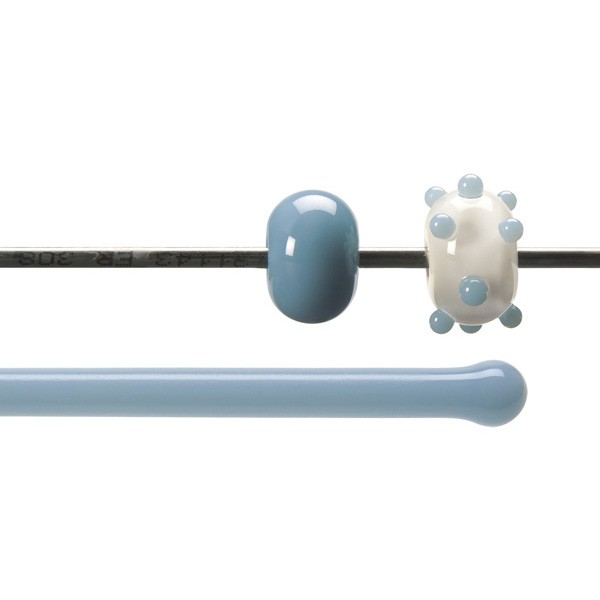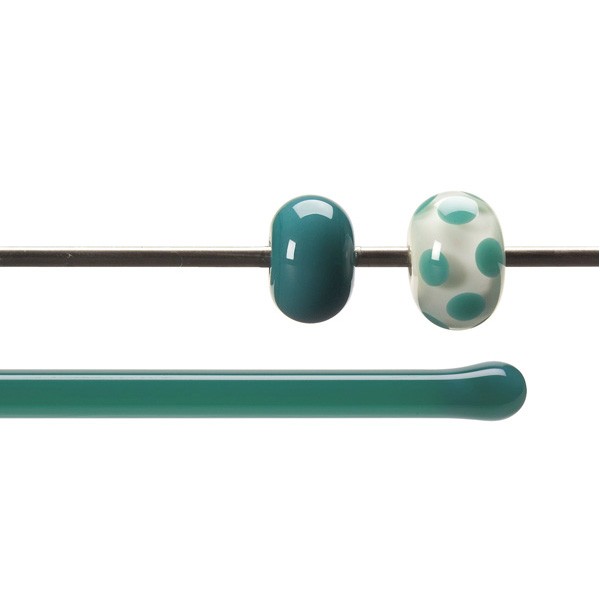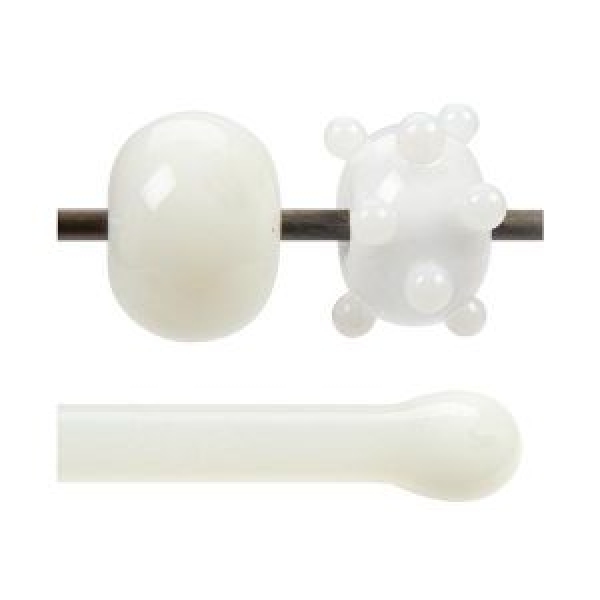Bullseye Rods - Translucent White - Opalescent - 4-6mm
8684
"Striker" please read description
"Striking glasses" change dramatically to reach target colour during firing. Colours may vary, depending on firing schedule, rate, atmosphere, and heat work.
| Contains: | Lead | |
|---|---|---|
| May react with: | Selenium Sulfur |
|
| Cold characteristics: | (Deceptively) clear or clear with a white struck streak running lengthwise down the middle of the rod. Striker. | |
| Torch: | 0243 can strike to a transparent white with stone like qualities similar to quartz. Generally speaking, the heat required to form a bead leaves the glass unstruck and clear. This glass strikes as it cools, rather than when it is heated. Here is a series of steps that can make the striking process more efficient: Do this until carbon collects on the glass (not just the mandrel). The purpose is not to actually carbonize or reduce the glass but simply to keep it at a cool, consistent temperature throughout the piece. Turn the oxygen back on and ease the bead into the neutral flame from the tip of the flame (farthest from the nozzle). Reheat the glass and bring it to a slightly molten state while keeping it cool enough to retain its shape. The carbon will burn away. At this point, briefly remove the bead from the flame. Looking closely at the bead, it should start to take on a hazy appearance with a yellow tint which is the glass beginning to strike. The bead may need a little more heat, just to equalize the temperature of the glass and to keep it warm as it gets put into a kiln for annealing. This process holds the glass in the appropriate striking zone, and is slightly unusual for many torchworking styles. This approach may not be necessary if the style of torchwork being done involves holding the glass at cooler temperatures over a longer period of time (like some sculptural work). |
|
| Other: |
|
|
| Kiln: | Opacity may vary upon firing , as the core may not strike completely. Expect variation. |
8684 0.030000

